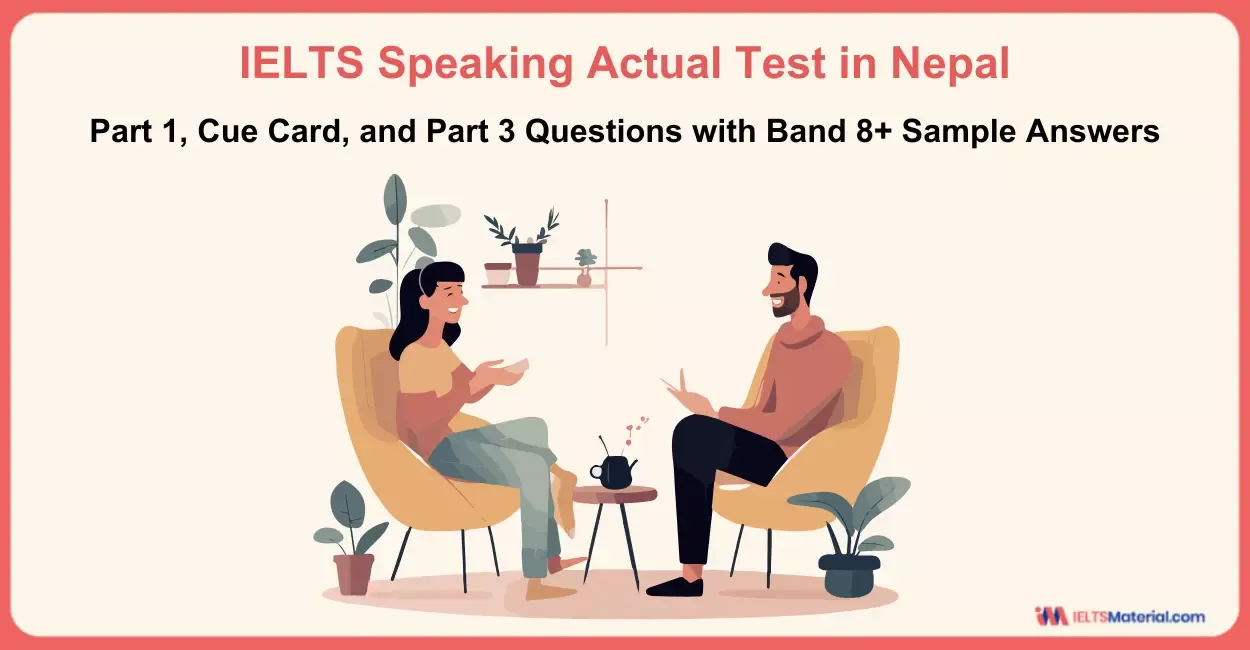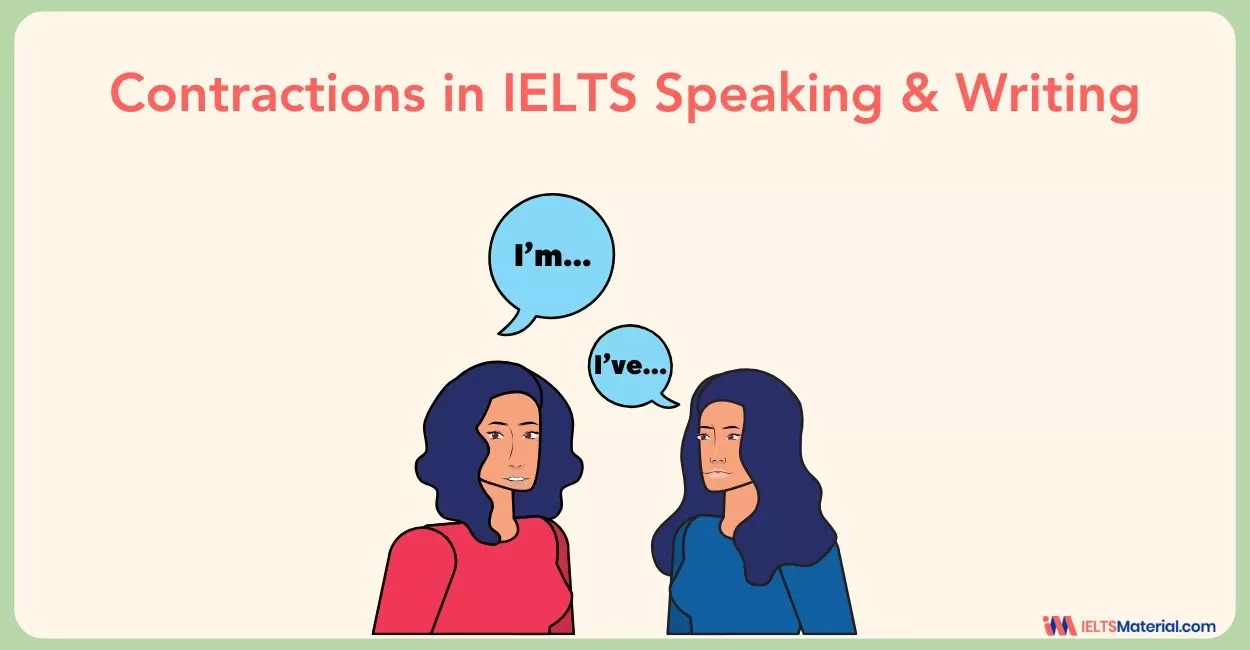How to Express Your Mixed Feelings in IELTS Writing & Speaking?
5 min read
Updated On
-
Copy link
Are you confused about how to express mixed feelings in IELTS Writing and Speaking? Discover strategies and examples to articulate complex emotions and viewpoints here, enhancing your language proficiency and chances of a Band score 9.
Table of Contents

Limited-Time Offer : Access a FREE 10-Day IELTS Study Plan!
In the IELTS exam, especially in Speaking Part 2 and 3 and Writing Task 2, you are often required to express opinions, attitudes, and emotions. However, your feelings about certain topics can be neither positive or negative, making them mixed and challenging to express. Therefore, this guide will help you master the art of articulating complex emotions and nuanced viewpoints, offering practical tips and examples to enhance your language skills and improve your IELTS band score to band 8+.
Boost Your IELTS Score!
Join Our Free IELTS Webinar to Master All 4 Modules and Improve Your Skills!
How to Express Your Mixed Feelings in IELTS Speaking?
In the IELTS Speaking section, the tone is more natural, conversational, but still organized. Therefore, expressing mixed feelings can impress the examiner because it shows you can express complexity, use a range of vocabulary, and sound natural.
Let’s check out some ways on how to express your mixed feelings in IELTS Speaking.
1 Mixed Feelings/Emotions
When somebody feels both pleased and displeased about something at the same time, we can say that they have mixed feelings about it.
Example: I have mixed feelings about studying abroad – in some ways nervous, but also quite excited.
2 Ambivalent/Have Ambivalent feelings towards something
If you have two opposing feelings at the same time and feel uncertain about what you think, you have ambivalent feelings towards it.
Example:
- I felt ambivalent about studying abroad
- She has fairly ambivalent feelings towards her studying abroad.
3 Conflicted
An even stronger and slightly formal phrase to show that you are uncertain and have mixed feelings about something.
Example: I still feel conflicted about my decision to moving to New Zealand, pleased that I made it but also regretful.
4 Blow hot and cold
This is a great idiom to show that you’re confused about how you feel, sometimes you like someone/something, sometimes you don’t.
Example: I’m blowing hot and cold about travelling alone to Australia.
5 Make of someone/something
We can use this phrasal verb to express that we don’t properly understand someone or something. In other words, when you can’t make of someone/something, you find it hard to have an impression/opinion/understanding about someone/something.
Example: I don’t really make of her, my new colleague, although we have been working in a team for a couple of weeks.
6 Make somebody out
Make somebody out has the same meaning as make of someone. It means that you can’t understand someone properly.
Example: I can’t completely make him out even though we have gone through a lot of obstacles together.
7 Torn
When somebody can’t reach a decision about something and this makes them feel confused and unhappy, we can say that they are torn.
Example :
- I can’t make up my mind whether I should move to Australia or New Zealand. I am torn.
- I was torn between taking a gap year or approaching a tertiary education straight away after finishing high school.
8 (UK) In two minds/(US) of two minds
If you are in/of two minds about doing something, you cannot decide whether to do it
Example: I’m in two minds about whether to support the new policy of smoking ban in public places.
How to Express Your Mixed Feelings in IELTS Writing?
In IELTS Writing, especially Task 2 essays (opinion, discussion, advantages/disadvantages essays), it is common to have complex and balanced views. If you are able to express mixed feelings carefully, it helps demonstrate critical thinking, advanced vocabulary and coherence and cohesion in IELTS Writing.
Here are 4 specific ways to express mixed emotions in IELTS Writing:
1 Use Contrasting Connectors Properly
When expressing two opposite feelings, logical linking words make the contrast clear and academic. Some of the useful contrasting phrases are:
- Although...
- Even though...
- While...
- On the one hand... On the other hand...
- Nevertheless / Nonetheless...
Example: On the one hand, technology enhances connectivity; on the other hand, it fosters feelings of social alienation.
2 Use Modal Verbs for Uncertainty
Modal verbs can express possibility, probability, or hesitation — important when conveying mixed feelings. Some of these modals that you can use are ‘might’, ‘could’, ‘may’ and ‘would possibly’.
Example: While government funding for the arts might enrich cultural life, it could also divert resources from more pressing social issues.
3Acknowledge Both Sides Without Fully Committing
Especially in ‘Discuss both views and give your opinion’ essays, express understanding of both sides before stating your view. You can use some useful phrases like:
- It is understandable that...
- Both sides present compelling arguments...
- While there are strong reasons supporting..., there is also significant concern regarding...
Example: While there are strong reasons supporting the integration of artificial intelligence into education, significant concerns regarding privacy and dependence must also be acknowledged.
4Academic Idiomatic Phrases (Formal Versions)
IELTS Writing requires formal tone, but you can use some polished idiomatic phrases academically. Some of them are:
- The situation is not black and white.
- This issue is fraught with complexity.
- There are shades of grey in evaluating this matter.
Example: The decision to permit remote working is not black and white, as it offers both increased flexibility and challenges in maintaining team cohesion.
Prepare for IELTS with the Best!
Explore Our Top IELTS Online Courses and Enroll in Online Classes Today!
Tips for Expressing Mixed Feelings Effectively in IELTS
Here are some IELTS exam preparation tips for band score of 8+ by handling mixed feelings effectively in IELTS:
- Use a Range of Vocabulary: Avoid repeating ‘mixed feelings’ multiple times. Alternate between relevant IELTS vocabulary, like ‘ambivalent’, ‘conflicted’, ‘torn’, etc. This shows your vocabulary range — a key factor in high band scores.
- Use Linking Words to Show Contrast: Use connectors, like ‘however’, ‘although’, ‘even though’, ‘despite’, ‘whereas’, ‘while’ to link conflicting ideas smoothly. For example, ‘Although I was excited to live abroad, I couldn’t help but feel homesick.’
- Use Appropriate Tone: In Speaking, sound reflective — slow down slightly when mentioning the ‘negative’ side. In Writing, stay formal and balance your arguments with logical linking words for IELTS Speaking section.
- Provide Specific Examples: Always illustrate your mixed emotions with real or imagined scenarios. It will make your answers richer and easier for the examiner to follow.
- Don't Be Overly Complicated: Mixed emotions are complex, but your language should remain clear and structured. One or two contrasting ideas are enough and avoid listing too many feelings in one sentence.
To sum up, expressing mixed feelings in IELTS Writing and Speaking is a powerful tool to show the examiner your language flexibility, critical thinking, and emotional intelligence. So, next time you feel ‘in two minds’ about something — don't hide it. Express it smartly for your desired Band 9 in IELTS!
Useful Links:
- What is the Correct Tone in IELTS Speaking Test?
- 100+ Advanced Vocabulary Word List for IELTS (PDF Available)
- The Best Phrases to Use in IELTS Speaking
- How to Organize Your Responses on the IELTS Speaking Exam?
- Self-Introduction for IELTS Speaking Test: A Complete Guide
- Synonyms for IELTS Writing: The Ultimate Guide
- 5 Best Podcasts for English Learners
- Advanced Grammar Structures for IELTS to Achieve Band 7+
Frequently Asked Questions
How do you describe having mixed feelings in IELTS?
Is it good to express mixed feelings in IELTS Speaking?
Can I use "I don't know what to make of it" in IELTS?
How many times should I express mixed feelings in IELTS Speaking?
Explore IELTS related articles

Start Preparing for IELTS: Get Your 10-Day Study Plan Today!
Explore other Speaking Articles



Kasturika Samanta

Prity Mallick
Recent Articles

Nehasri Ravishenbagam

Nehasri Ravishenbagam

Haniya Yashfeen





Post your Comments
2 Comments